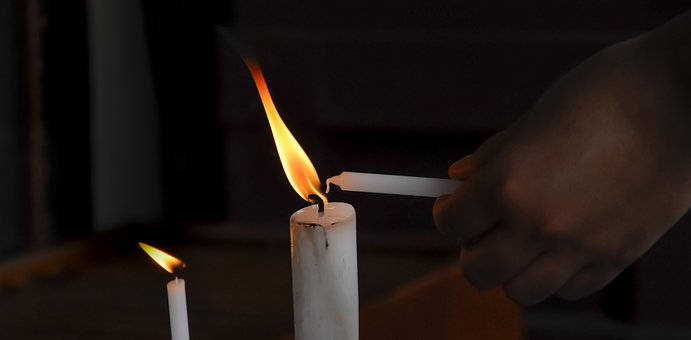Nostalgia ***
by Mario Martone
Italian film, 1 h 57
During his presentation at Cannes last May, this unclassifiable film went relatively unnoticed, crushed by the heavyweights of the competition. A discretion which is as much due to the personality of its director, Mario Martone, man of the theater and rare filmmaker, oscillating between documentary and fiction, as of the film itself: a wandering in a district of Naples, the Sanità, and in the mental labyrinth of a man trapped in a past and a city that he never managed to get rid of.
Felice, however, left him forty years earlier for reasons left at first obscure. He returns there to take care of his old mother, neglected during all these years, and relegated to the shabby ground floor of his building. The city plagued by precariousness and the influence of the mafia has not really changed. Why has this man who roams the streets of his childhood gone so long? What haunts him to the point of going to confession to the parish priest, launched into a merciless war against the Camorra and its deadly influence on the young people of this deprived neighborhood?
A dive into the teeming and labyrinthine Naples
This mystery shrouds the entire beginning of the film. We will just learn, by rare clues, that he settled in Egypt, succeeded in business there, got married there and converted to Islam. The first half hour, purely contemplative, is imbued with this nostalgia that makes its title. Like a documentary, we dive with Felice into this teeming and labyrinthine Naples, whose geography encloses the hero in a past he would have preferred to forget.
Pierfrancesco Favino, the formidable actor of Traitor by Marco Bellocchio, who plays Felice, is almost mute. Only his looks or his gestures, especially in a very beautiful scene where he washes his mother, express emotions that have been contained for too long.
Far from the codes of the Mafia film
After this sometimes disconcerting set-up, the plot finally unfolds and gives rise to an inevitable confrontation with his past and his childhood friend, Orestes. Having become a powerful and feared godfather of the local mafia, he saw Felice’s return as a threat, due to a founding episode of their youth.
But if this second part borrows part of its scenario from the genre, we remain very far from the codes of the Mafia film. It is only a pretext for a reflection on roots, guilt and forgiveness which takes us to the heart of the city, a character in its own right in this story.
An austere and elegant staging
Mario Martone, himself a Neapolitan, films it in all the splendor of its decay. In the softness of an orange-yellow light, it badly hides behind its dilapidated facades and its winding alleys the evil that has always gnawed at it and is embodied in the sick figure of Orestes, now condemned to be locked up between the four walls of his flat. “Being Neapolitan is a special way of being Italianexplains the filmmaker. Everyone hides behind a mask, and thus hides the deep conviction that the fact of being in the world is a condition of suffering.»
Returning to Naples, the hero settles the accounts of the past and faces what he could have become if he had not made the choice to leave. Orestes and Felice are thus the two sides of the same tragedy which borrows its inescapable character from classical theatre. Unveiled through not always very happy flashbacks, the key to the mystery may appear agreed but does not detract from Mario Martone’s elegant staging. At first glance austere, it unfolds in small touches, as one progresses through the twists and turns of the neighborhood and into the spirit of Felice. A beautifully orchestrated inner journey carried by the power of its main actor.
——–
Pierfrancesco Favino, a late revelation
1969. Born August 24 in Rome.
1991. A graduate of the National Academy of Dramatic Art Silvio-D’Amico, he began his career on television before turning to film four years later.
2005. He is revealed for his role in Romanzo criminaleby Michele Placido
From 2006. He alternates supporting roles in American productions under the direction of Spike Lee (Miracle in Santa Anna) or Ron Howard (Angels and Demons, Rush) and in Italian films for Gabriele Muccino (Our best years), Marco Tullio Giordana (Piazza Fontana) or even Stefano Sollima (Suburra).
2019. He interprets the role of Tommaso Buscetta in The traitor by Marco Bellocchio, in competition at the Cannes Film Festival.
2020. He received the Volpi Cup for Best Actor at the Venice Film Festival for padrenostroby Claudio Noce.
We would like to thank the author of this post for this awesome web content
“Nostalgia” by Mario Martone, the ghosts of Naples
Take a look at our social media profiles and other pages related to themhttps://nimblespirit.com/related-pages/

